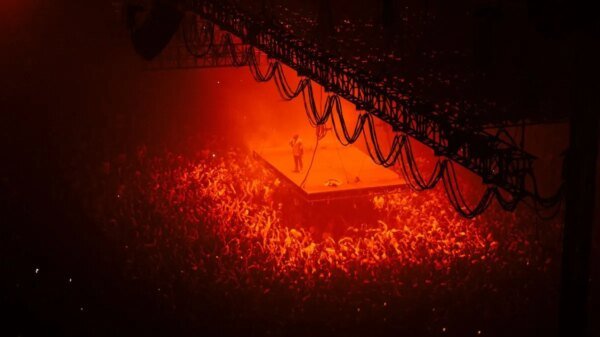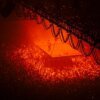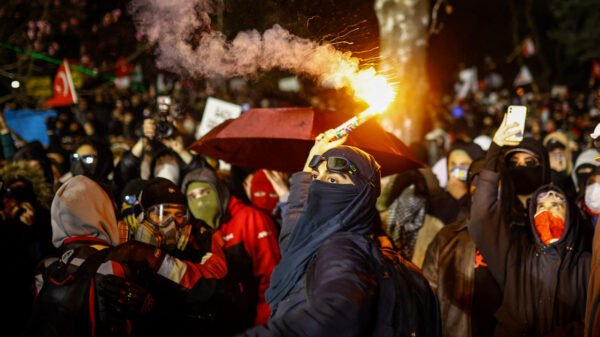A collection of advances by the Sudanese army has led some observers to posit that the African nation’s yearslong civil battle might be at a crucial turning point.
Even when it had been to finish tomorrow, the bloody battle would have left the Sudanese individuals scarred by violence that has killed tens of thousands and displaced millions of individuals. However the current victories by the army don’t spell the top of its adversary, a insurgent paramilitary group that also holds giant areas in Sudan.
The Dialog turned to Christopher Tounsel, a historian of modern Sudan at the University of Washington, to elucidate what the battle has value and the place it might flip now.
Are you able to give a abstract of the civil battle thus far?
On April 15, 2023, combating broke out in Sudan between the Sudanese Armed Forces, or SAF – led by de facto head of state Gen. Abdel Fattah al-Burhan – and the paramilitary Rapid Support Forces, or RSF, led by Gen. Mohamed Hamdan Dagalo, identified colloquially as “Hemedti.” The RSF emerged out of the dreaded Janjaweed militia that had terrorized the Darfur region of Sudan.
Whereas the SAF and RSF previously worked together to forcibly take away longtime President Omar al-Bashir from energy in 2019, they later cut up amid an influence battle that turned lethal.
The most important level of competition was the disputed timeline for RSF integration into the nationwide army, with the RSF preferring a 10-year course of to the SAF’s most well-liked two-year plan.
By early April 2023, the federal government deployed SAF troops along the streets of the capital, Khartoum, whereas RSF forces took up places all through the nation. Issues got here to a head when explosions and gunfire rocked Khartoum on April 15 of that 12 months. The 2 forces have been in battle ever since.
To human toll of the civil war has been staggering. As of February 2025, estimates of those killed from the battle and its associated causes, together with lack of adequate medical amenities and starvation, have ranged from 20,000 to 150,000 – a large gulf that, in accordance with Humanitarian Analysis Lab govt director Nathaniel Raymond, is partially as a result of the truth that the useless or displaced are nonetheless being counted.
The battle has displaced greater than 14 million individuals, a quantity that demographically makes the Sudan scenario the world’s worst displacement disaster. Practically half of Sudan’s inhabitants is “acutely meals insecure,” in accordance with the U.N.’s World Food Programme. One other 638,000 face “catastrophic ranges of starvation” – the world’s highest quantity.
How have current developments modified the battle?
The SAF has just lately scored a slew of victories. At time of writing, the Sudanese army controls a lot of the nation’s southeastern border with Ethiopia, the Pink Beach – and, with it, Sudan’s strategically essential Port Sudan – and elements of the nation’s metropolitan heart situated on the confluence of the Blue and White Nile rivers.
Additional, the SAF has reclaimed a lot of the White Nile and Gezira provinces and damaged an RSF siege of North Kordofan’s provincial capital of el-Obeid. In maybe crucial growth, the military in late March recaptured the RSF’s last major stronghold in Khartoum, the Presidential Palace.
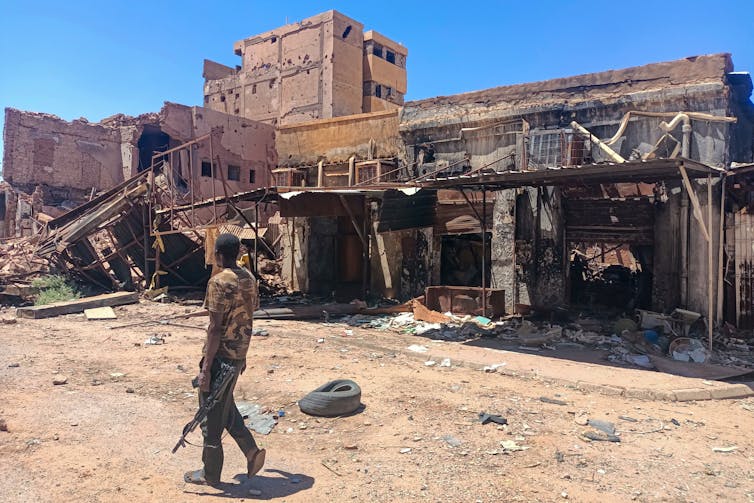
AFP via Getty Images
Every of those actions signifies that the SAF is taking an more and more proactive method within the battle. Such optimistic momentum couldn’t solely serve to reassure the Sudanese populace that the SAF is the nation’s strongest drive but additionally sign to international powers that it’s, and can proceed to be, the nation’s reputable authority shifting ahead.
And but, there are different indications that the RSF is in no rush to concede defeat. Regardless of the SAF’s advances, the RSF has strengthened its control over almost all of Darfur, Sudan’s large western area that shares a prolonged border with neighboring Chad.
It’s right here that the RSF has been accused of committing genocide in opposition to non-Arab communities, and solely the besieged capital of North Darfur, El Fasher, stands in the best way of whole RSF hegemony within the area. The RSF additionally controls territory to the south, alongside Sudan’s borders with the Central African Republic and South Sudan.
The truth that the SAF and RSF are entrenched of their respective regional strongholds casts doubt on the importance of the army’s current victories.
Might Sudan be heading to partition?
As a historian who spent years writing about South Sudanese separatism, I discover it considerably unfathomable to think about that Sudan would additional splinter into completely different international locations. Given the present state of affairs, nevertheless, partition is just not outdoors the realm of risk. In February, during a summit in Kenya, the RSF and its allies formally commenced plans to create a rival authorities.
The African Union’s 55 member states are said to be split on the difficulty of Sudanese partition and the query of whether or not any entity linked with the RSF ought to be accepted. In January, throughout the waning days of U.S. President Joe Biden’s presidency, Washington decided that the RSF and its allies had committed genocide and sanctioned Hemedti, the RSF chief, prohibiting him and his household from touring to the U.S. and freezing any American property he could maintain.
Any try and entertain partition might be learn as an acknowledgment of the legitimacy of the RSF and would additionally create a harmful precedent for different leaders who’ve been accused of human rights violations.
Along with the RSF’s perceived lack of ethical legitimacy, there may be additionally the current precedent of South Sudan’s secession. South Sudan, since seceding from Sudan in 2011, has skilled monumental difficulties. Roughly 2½ years into independence, the nation erupted right into a civil battle waged largely along ethnic lines. For the reason that conclusion of that battle in 2018, the world’s youngest nation continues to battle with intergroup violence, meals insecurity and sanctions ensuing from human rights violations.
Merely put, current Sudanese historical past has proven that partition is just not a risk-free resolution to civil battle.
How has shifting geopolitics affected the battle?
It is very important perceive that the battle’s ripples extend far beyond Sudan’s borders. Equally, the actions of nations such because the U.S., Russia and China have an effect on the battle.
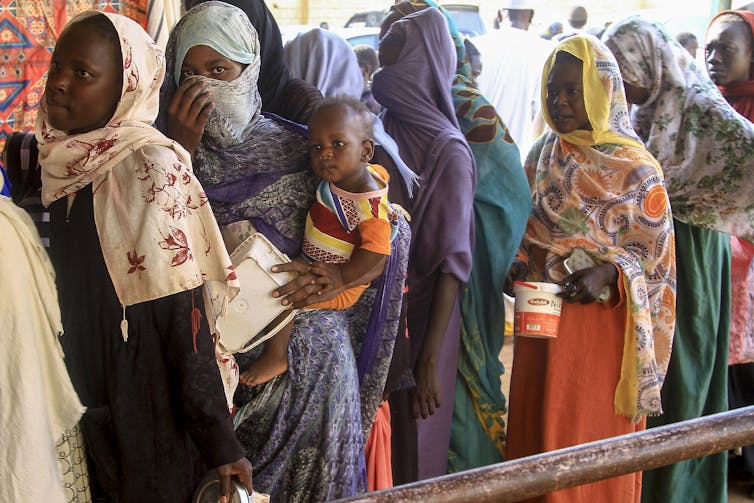
Ebrahim Hamid/AFP via Getty Images
President Donald Trump’s govt order freezing contributions from the U.S. authorities’s growth group, USAID, has shuttered approximately 80% of the emergency meals kitchens established to assist these impacted by the battle. An estimated 2 million individuals have been affected by this growth.
Russian monetary and army contributions have been credited with serving to the SAF obtain its positive aspects in current months. Russia has lengthy desired a Pink Sea naval base close to Port Sudan, and the expulsion of Russia’s fleet from Syria following the autumn of President Bashar Assad elevated the significance of such a base.
After which there may be China. A major importer of Sudanese crude oil, China engaged in conversations to renegotiate oil cooperation agreements with Sudan in October 2024 with the hopes of accelerating oil manufacturing amid the battle. An finish to the battle – and, with it, defending the stream of oil by pipelines weak to assault – would profit each members of this bilateral relationship.
Because the battle enters its third 12 months, the outlook stays frustratingly tough to discern.








































